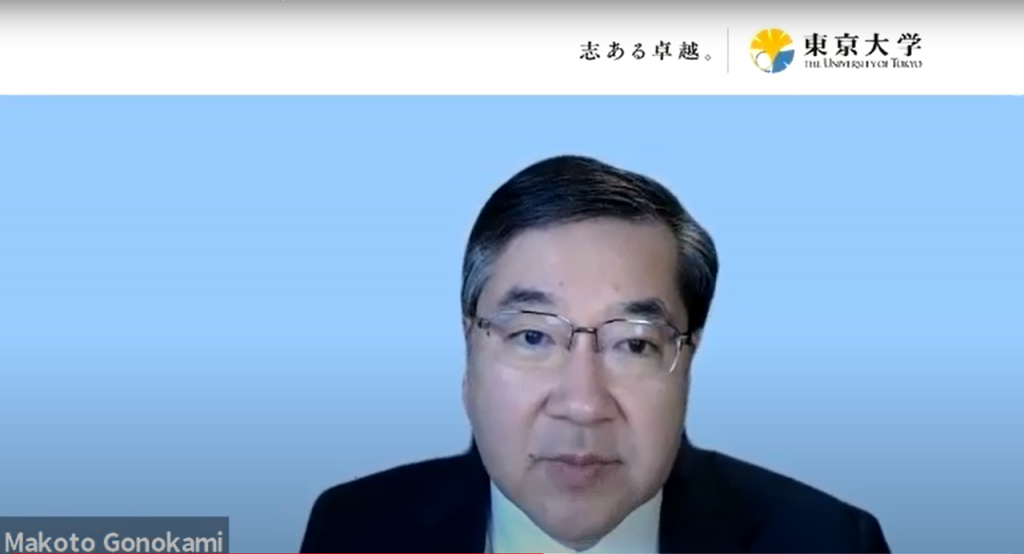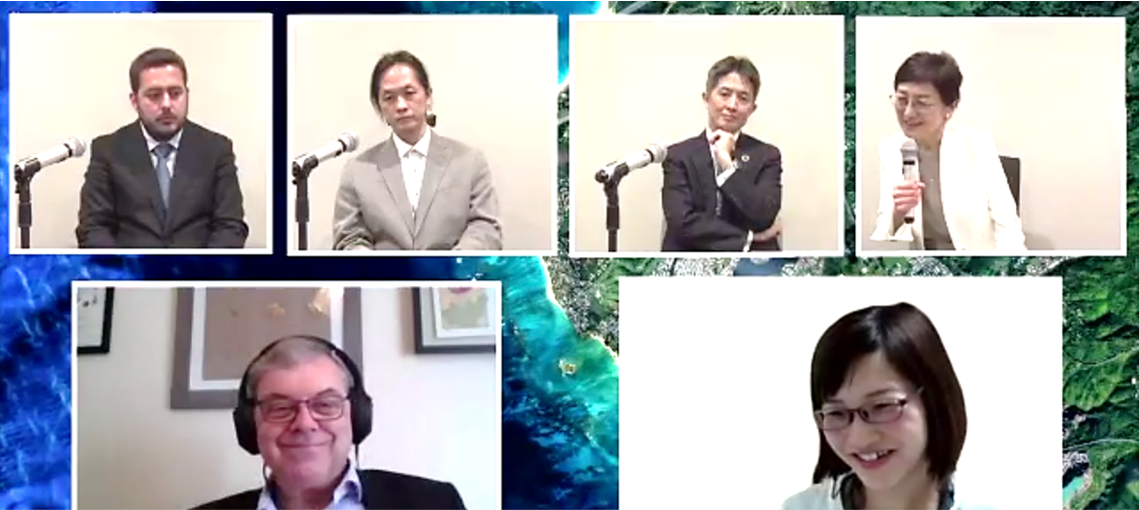SDGs Symposium 2021: Interdisciplinary science solutions for food, water, climate and ecosystems Sustainable Development Goals
- Date:Fri, Mar 26, 2021
- Time:16:30-19:00
- Location:Online(Zoom Webinar)
- Co-sponsor:
Springer Nature
The University of Tokyo - Language:
English
- Registration:
Registration fee: Free
*Registration is now closed for this event.
The wellbeing of our planet contributes directly and indirectly to human wellbeing in multiple ways. Our environment is a major source of food, materials and livelihoods to millions of people globally, while at the same time providing a habitat to millions of species, and regulating hydrological cycles and the global climate. However, ecosystems face multiple pressures including climate change, habitat loss, pollution and species overexploitation, many of which are often driven by economic growth, trade and urbanization. The combined effect of these pressures has important ramification for the sustainability of the planet, including human societies.
The interconnectivity between social and natural systems, also suggests the strong intersection between multiple Sustainable Development Goals(SDGs*) such as SDG2(Zero Hunger), SDG6(Clean Water and Sanitation), SDG13(Climate action), SDG14(Life below water) and SDG15(Life on land). Considering the important ramifications of ongoing climate and ecosystem change for sustainable development, there is an urgent need to generate interdisciplinary knowledge to understand these linkages and develop solutions at the interface of these SDGs.
Ultimately, achieving progress for the SDGs will require academia, business, policymakers and civil society to work together in a transdisciplinary manner. Nature, Nature Sustainability, Sustainability Science and its publisher, Springer Nature, play an important role in advancing the discovery and dissemination of evidence-based sustainability research. To highlight and strengthen these connections, on 26 March 2021 we are holding a symposium at The University of Tokyo. We wish to take this opportunity to invite some of Japan’s renowned researchers working at this interface to discuss with the editors the best ways for research to both explain these multi-faceted phenomena and develop effective solutions. We look forward to your participation in this event.
*SDGs: Sustainable Development Goals are the 17 Goals for sustainable development, ratified by the 193 member states of the United Nations in 2015, for delivery by 2030
- 16:30-16:35Opening remarks
Makoto Gonokami(President, The University of Tokyo)
- 16:35-16:55Keynote Speaker1"How researchers, their institutions and their publishers can boost their impacts on major societal challenges"
Philip Campbell(Editor in Chief, Springer Nature)
- 16:55-17:15Keynote Speaker2"Data and curiosity driven earth system science for the SDGs"
Taikan Oki(Professor, The University of Tokyo)
- 17:15-17:20Break
- 17:20-17:50Presentation
“Linking of ocean science and SDGs through numerical simulations” (Hiroyasu Hasumi)
“Unraveling the sustainability trade-offs of commercial agriculture in Sub-Saharan Africa in the context of the Sustainable Development Goals” (Alexandros Gasparatos)
“How do we reconcile a long-term climate goal and sustainable development?” (Tomoko Hasegawa)
- 17:50-18:50Panel discussion
【Speaker】
Taikan Oki(Special Advisor to the President, and Professor at Graduate School of Engineering, The University of Tokyo Senior Vice-Rector, United Nations University, Japan Assistant Secretary-General, United Nations)Hiroyasu Hasumi(Professor, Atmosphere and Ocean Research Institute, The University of Tokyo)
Alexandros Gasparatos(Associate Professor, Institute for Future Initiatives, The University of Tokyo)
Tomoko Hasegawa(Associate Professor, College of Science and Engineering, Ritsumeikan University)
Philip Campbell(Editor in Chief, Springer Nature)
【Moderator】
Hiroko Kuniya(Journalist) - 18:50-19:00Closing
Antoine Bocquet(Managing Director, Springer Nature)
Springer Nature
Institutional Marketing
Email:jpmarket★springernature.com(★→@)
The University of Tokyo held jointly with Springer Nature a symposium on interdisciplinary science approaches to meet the Sustainable Development Goals (SDGs) for food, water, climate and ecosystems on 26 March 2021. Following the first such symposium held in 2019 it was decided that for each subsequent symposium a specific area of the SDGs would be selected as the focus. In that vein, this year’s symposium focused on the SDGs on food (SDG2), water (SDG6), climate (SDG13), and ecosystems (SDG 14-15), which are closely interlinked.
Following opening remarks by President Makoto Gonokami from the University of Tokyo, Sir Phillip Campbell the Editor-in-Chief of Springer Nature outlined the real need for coordinated action between researchers, universities and publishers to create impactful studies and well-informed solutions to meet the SDGs for food, water, climate and ecosystems. Subsequently Prof. Taikan Oki from the Graduate School of Engineering, the University of Tokyo pointed to the emergence of global hydrology as an interdisciplinary approach seeking to understand water-related issues in the context of climate change.
Prof. Hiroyasu Hasumi from the Atmosphere and Ocean Research Institute, the University of Tokyo showed how methods from the natural sciences, and namely ocean science, can be mobilised to develop simulations to understand better processes underlying some SDGs. Associate Professor Alexandros Gasparatos from the Institute of Future Initiatives, the University of Tokyo discussed how techniques from the social sciences are crucial in understanding and solving the challenges posed by commodity crop expansion in Sub-Saharan Africa. Associate Professor Tomoko Hasegawa from the College of Science and Engineering, Ritsumeikan University demonstrated how merging insights from the natural and the social sciences in large-scale modelling studies could provide a powerful lens to understand the nexus of biodiversity, food security, and climate change.
Finally Ms. Hiroko Kuniya coordinated a panel consisting of all participants, which provided insights based on their experience on how to foster interdisciplinarity and build the capacity of young researcher to engage in solutions-oriented research to meet the SDGs for food, water, climate and ecosystems. Some of the insights discussed were the need to (a) foster joint visions within interdisciplinary groups, and understand the working modalities of their members to avoid misunderstanding, (b) identify better the roles that humanities can play in interdisciplinary groups, and (c) manage expectations and be very transparent about the foci and outcomes of transdisciplinary processes, as well as the roles of non-academic stakeholders.
Over 550 participants from around the world attended the symposium.

President Makoto Gonokami

From the top left:Assoc.Prof.Alexandros Gasparatos, Prof.Hiroyasu Hasumi, Prof.Taikan Oki, Ms.Hiroko Kuniya
From the bottom left:Sir Philip Campbell, Assoc.Prof.Tomoko Hasegawa